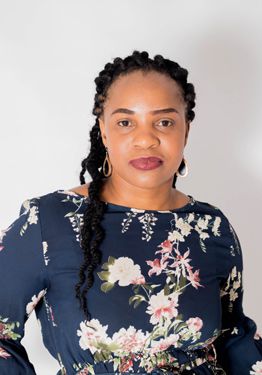Gender equality in the technology industry
Gender equality in technology remains a global challenge. To help more women prepare for careers in the tech industry, as part of SAICA’s Women in Leadership webinar series, two powerhouse women in the tech sector, Dr Sinini Ncube, Senior Software Developer at the Council for Scientific and Industrial Research (CSIR), and Arlene Mulder, Chairperson at The Click Foundation and founder of WeThinkCode_and BiB, examined what we need to do to improve gender diversity in the tech industry.

Ncube admits that one of the biggest challenges in the industry is that very few women even consider IT as a career option. “I’ve lectured at many institutions, and in my own experience, from educator level to student level, the number of females taking Computer Science is minimal.” She believes it boils down to awareness. “Women generally don’t even know about the countless possibilities IT can offer them,” she says.
Mulder agrees, pointing out that when she and her co-founder started WeThinkCode_, a tuition free coding university, in 2016, only 6% of applicants were female. “Often women simply don’t think coding is for them,” she says. “They all picture the guy in the basement with a ponytail hacking away on his own, they don’t realise it’s actually a social, creative and innovative career choice.”
WeThinkCode_ have dedicated a lot of intentional work into trying to change the narrative of what coding is, so as to recruit more females, and are proud that their 2020 intake showed 25% female applicants. “It’s an amazing improvement, but it’s still not enough,” says Mulder.
“In the USA 75% of women in IT started coding in high school, so it’s evident that a young exposure to coding has massive benefits,” says Mulder. She adds that it was her father, an engineer, who encouraged her to take Computer Science in high school, and as such, WeThinkCode_ is passionate about educating parents on the possibilities of coding as a career. “Careers such as accounting are front of mind for parents, but we need to start introducing coding into these conversations.”

Mulder adds that changing the narrative around how we talk about coding is incredibly important, too. “If we continue to talk about coding in relation to gaming, we’ll continue to get young males applying. We need to bring awareness to the fact that coding is highly creative and innovative, and that it is integral for building social solutions.”
With coding having such a strong association with maths, it can be difficult to imagine it as a creative career choice. But Ncube believes it is very much so. It was because of her affinity for maths that she was encouraged to pursue a degree in Computer Science, but she admits that she had no idea what she was getting into. She quickly found that, despite being in an all-male environment where she felt she didn’t belong, she quickly fell in love with the problem-solving challenges that programming put to her. “At a university level, you need maths to pursue Computer Science, but it’s not about the numbers, it’s because maths ingrains in students an ability for problem-solving,” says Ncube. “The computer takes instructions from us, it can’t think, so you have to think for it and give it a brain,” she explains. “That’s why you need logical but also creative thinking to understand coding and conduct tasks.”
Mulder adds that, as a mathematician herself, she can see how maths allows you to approach any problem with the belief that there is a solution. “I believe that the kind of thinking maths encourages is very important for coding, but given the education system in our country, we don’t want to write off students who may not have had exposure to basic maths, so at WeThinkCode_ maths is not a requirement.” Rather, the organisation tests a student’s way of thinking through specially formulated games which prove whether they have problem-solving capability.
Both women agree there is no age limit when it comes to learning coding. “I started my IT degree when I was in my 20s, so I wasn’t young and it took patience and effort to excel,” says Ncube. “Now I always tell my students that you have to be deliberate about learning the skills, and the new narrative that comes with coding.” She adds that there are countless online organisations that offer courses, and that these can be integral to changing the way you work, no matter how old you are.
Mulder advises finding a group of colleagues or friends to embark on this journey with. “Having a community you can tap into will make learning a more collaborative and productive experience, as you need to be able to bounce ideas, share knowledge and strengthen each other's weaknesses.” She also recommends choosing an element of coding that is relevant to your job. “It’s much easier to get into technology if you’re forced to use it.”
Ncube adds that as a woman she feels strongly about encouraging other women, especially black women, to pursue IT as a career. “I want more people like me to go to schools, encourage teachers and young girls, let them see live evidence of what IT can do for a woman in her career.”
Mulder agrees that women need to be encouraged to take risks. “Men are more confident when it comes to applying for jobs or courses they aren’t 100% qualified for, we need to take a page out of their book.” She adds that these days it is quite easy to upskill yourself in a completely new career path. “There is so much information out there, the best way is just to jump in and start.”
With IT becoming more and more integral to every single industry, Ncube is passionate about changing the narrative, and encouraging young children to study coding. “It can be used in any area whatsoever, from music to food to anything you can dream of.”
Mulder agrees that everyone should have some kind of IT training. “Whether it’s AI or robotic processing, think of coding as a tool that can help you automate and do your job better, a tool to help you leverage technology and make you more efficient.”
Sessions in SAICA’s Women in Leadership series have been recorded and can be viewed here.
- Inaugural Accounting Award introduced at NSC High Achievers Ceremony15 Jan 10:35
- 3rd edition of the IFRS for SMEs Accounting Standard09 Dec 16:13
- Prof. Wiseman Nkuhlu receives 2025 IFAC Global Leadership Award18 Nov 14:23
- Talha Essop named Overall Winner of Saica’s Trainee Trailblazer Awards 202514 Nov 11:13
- Ntebaleng Twala crowned Overall Winner of Saica’s Top-35-Under-35 Awards 202513 Nov 13:55






















